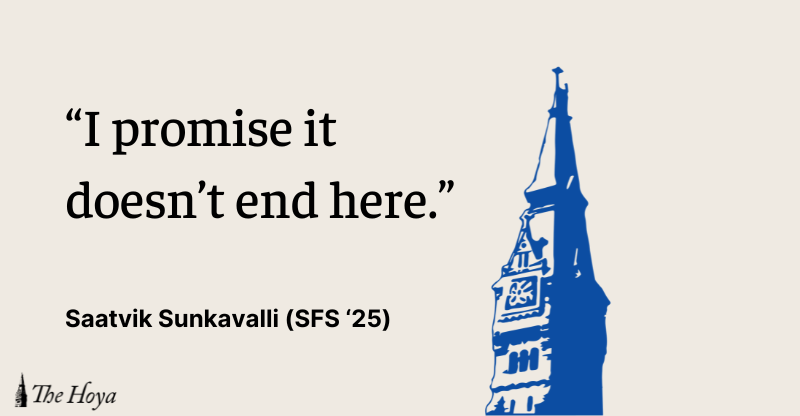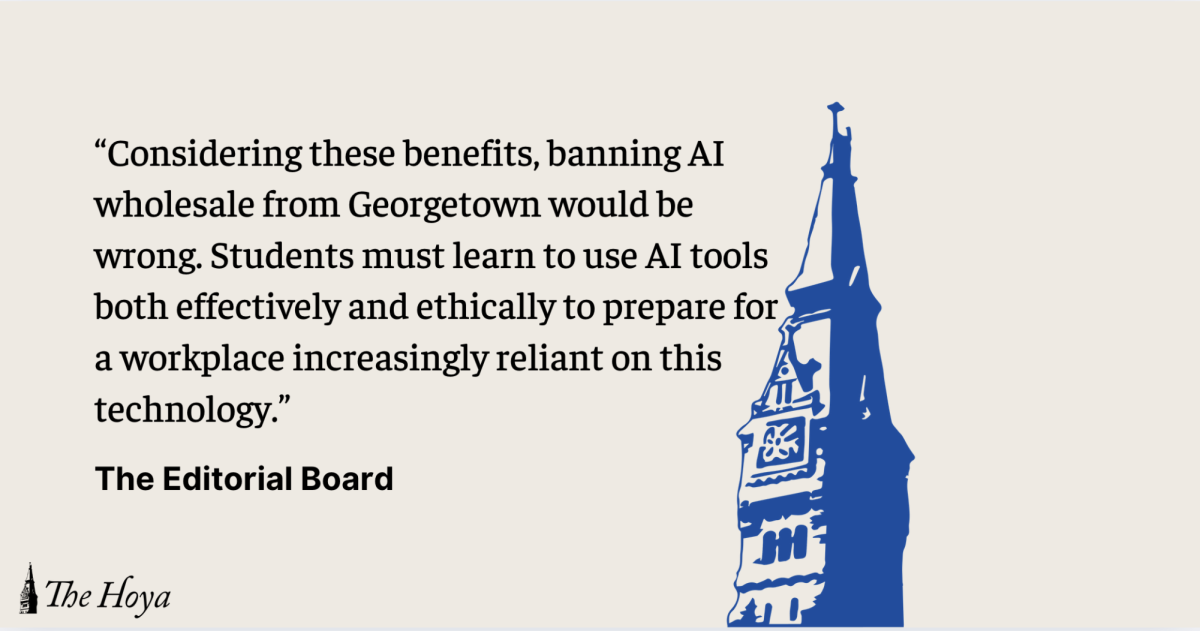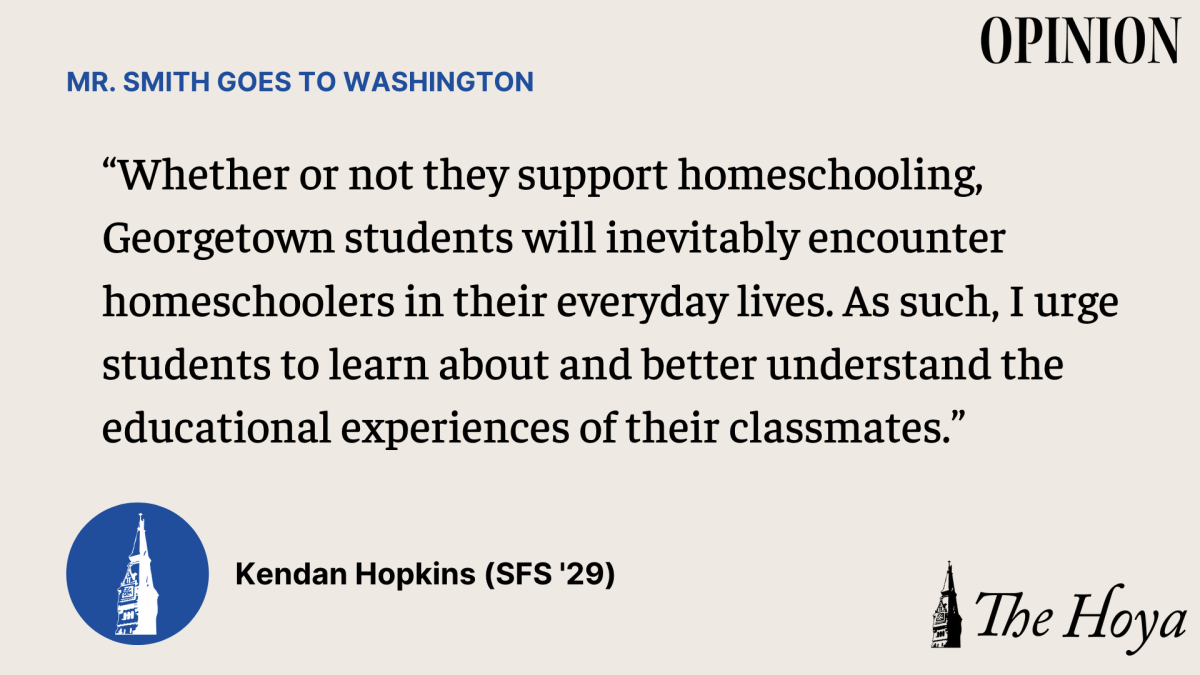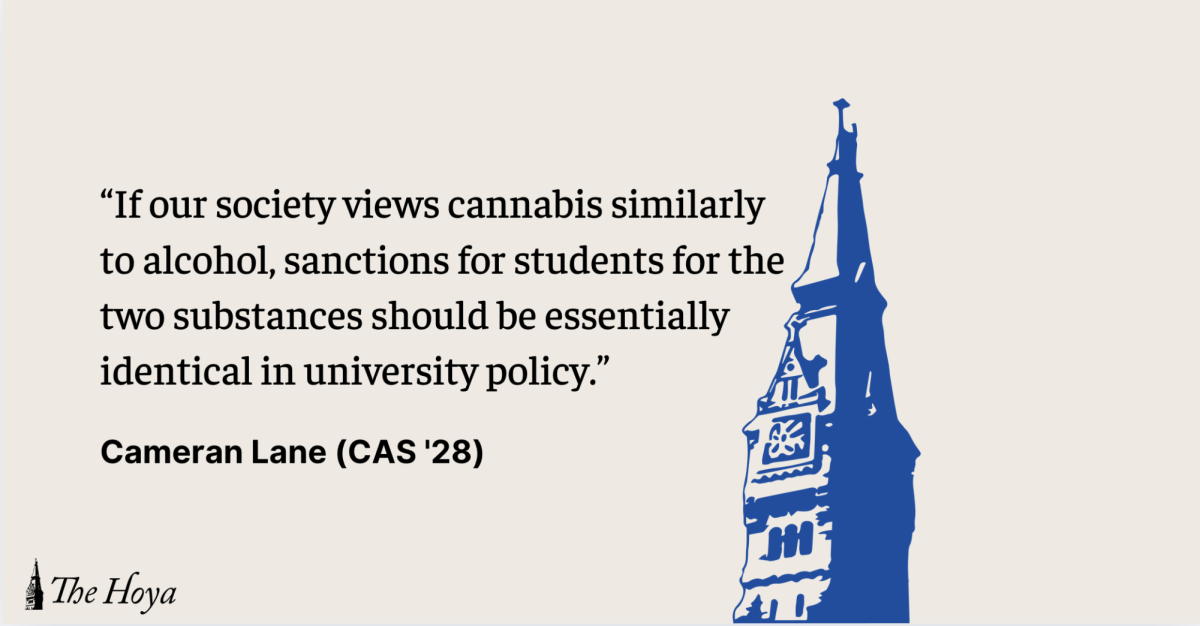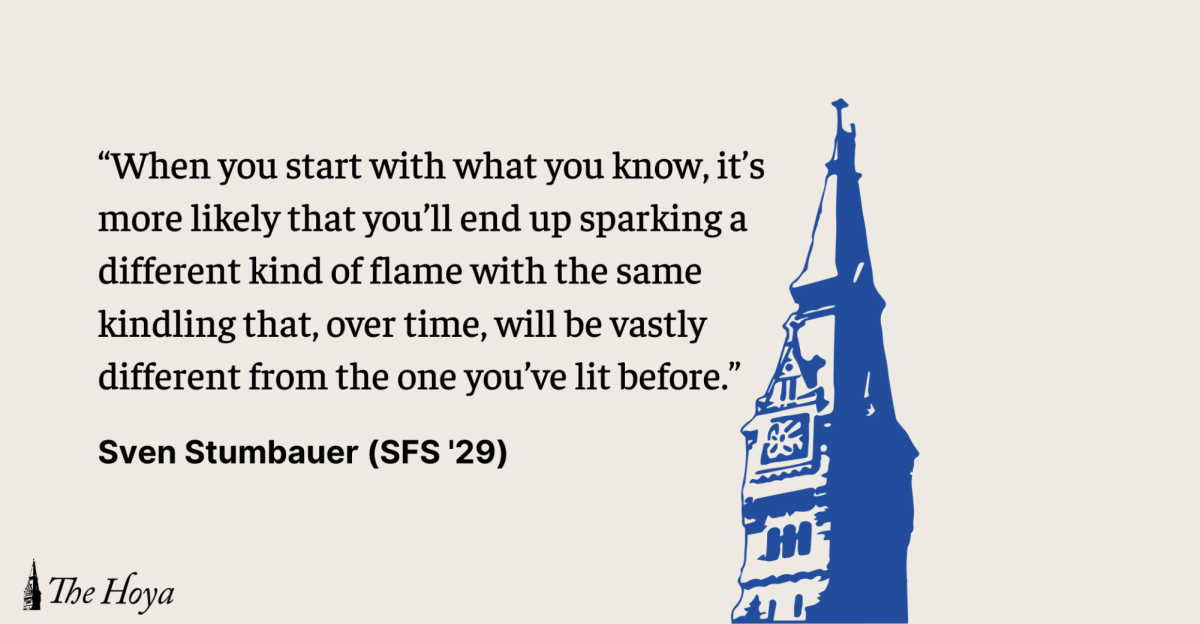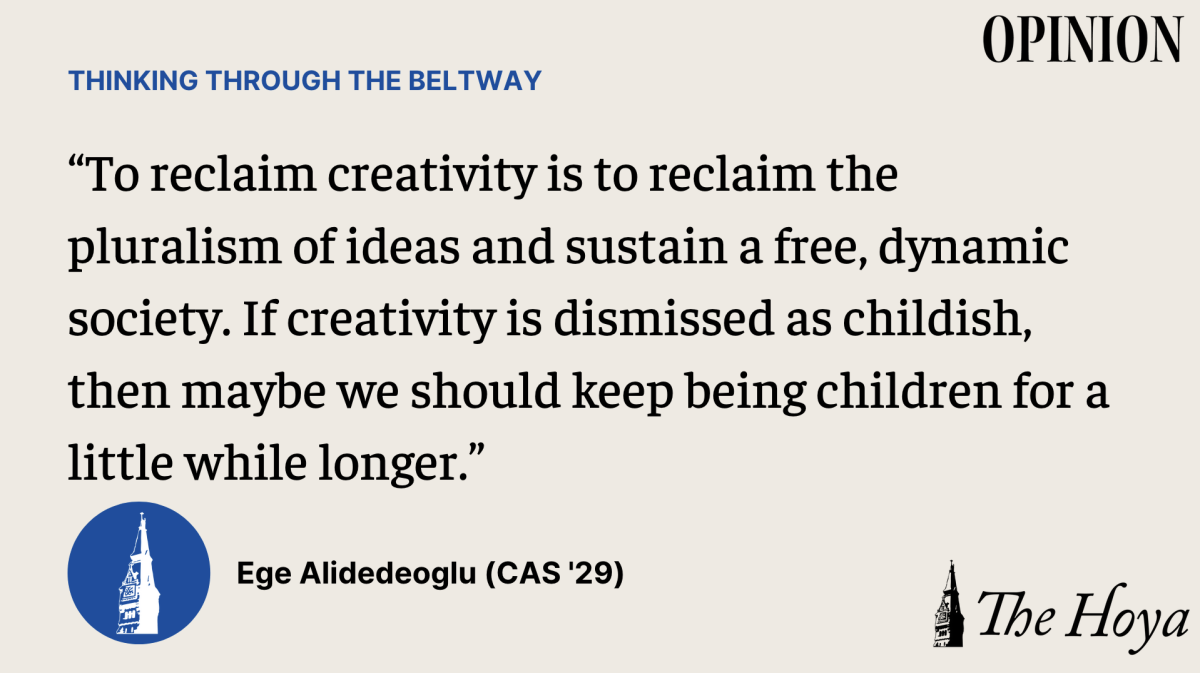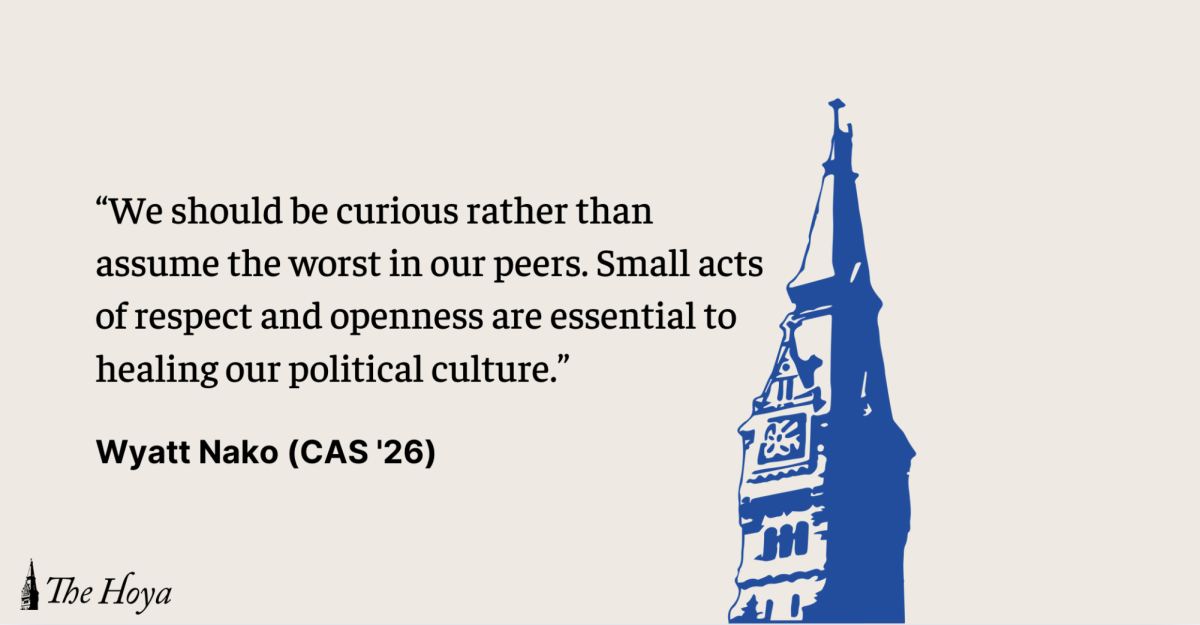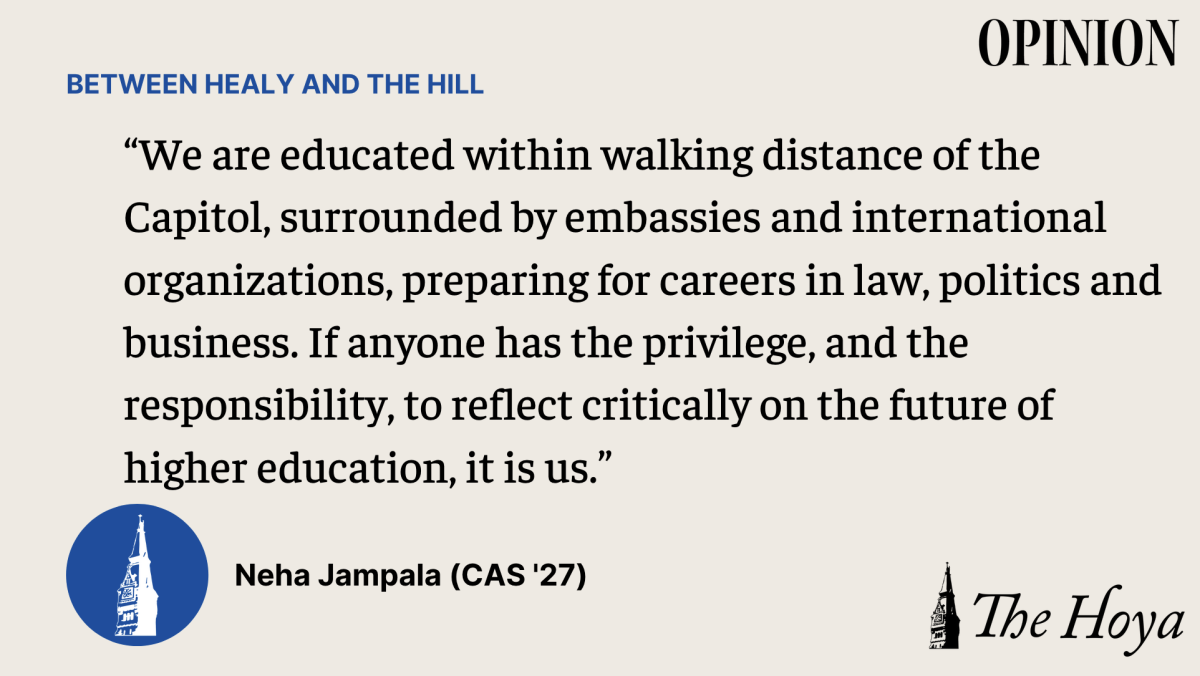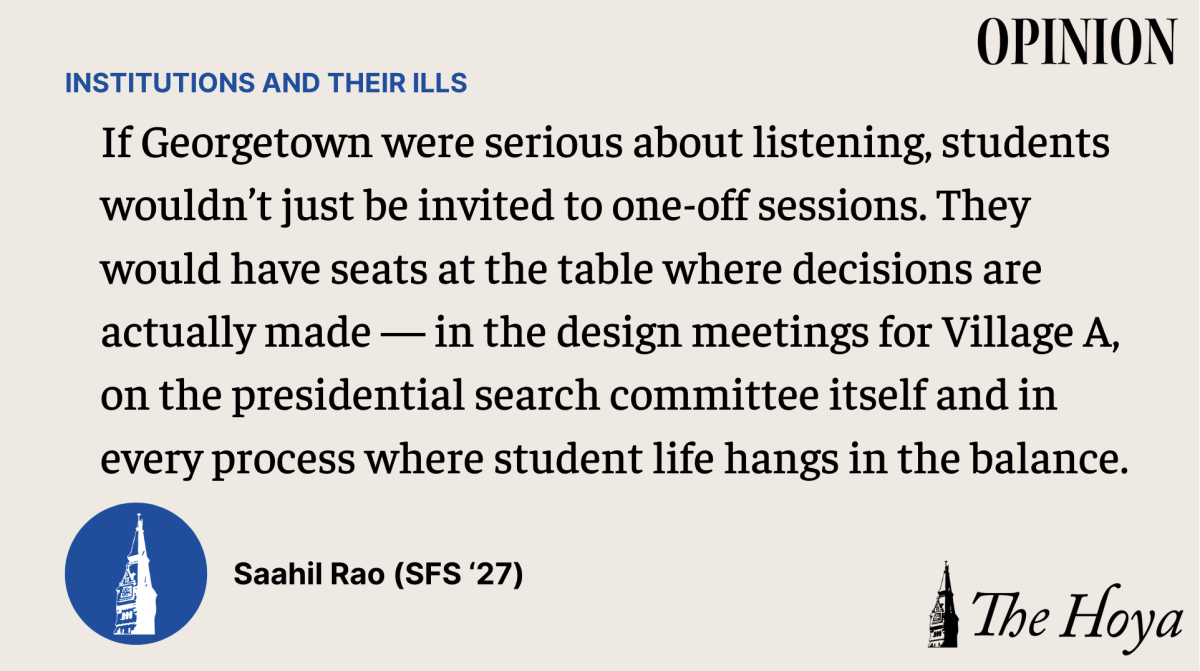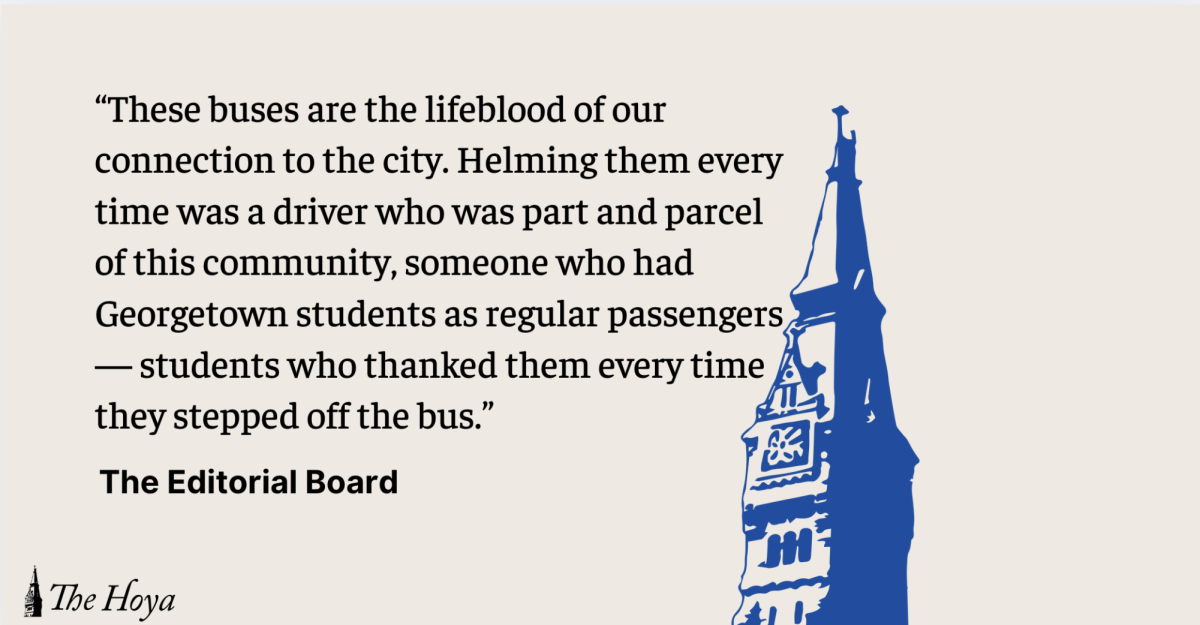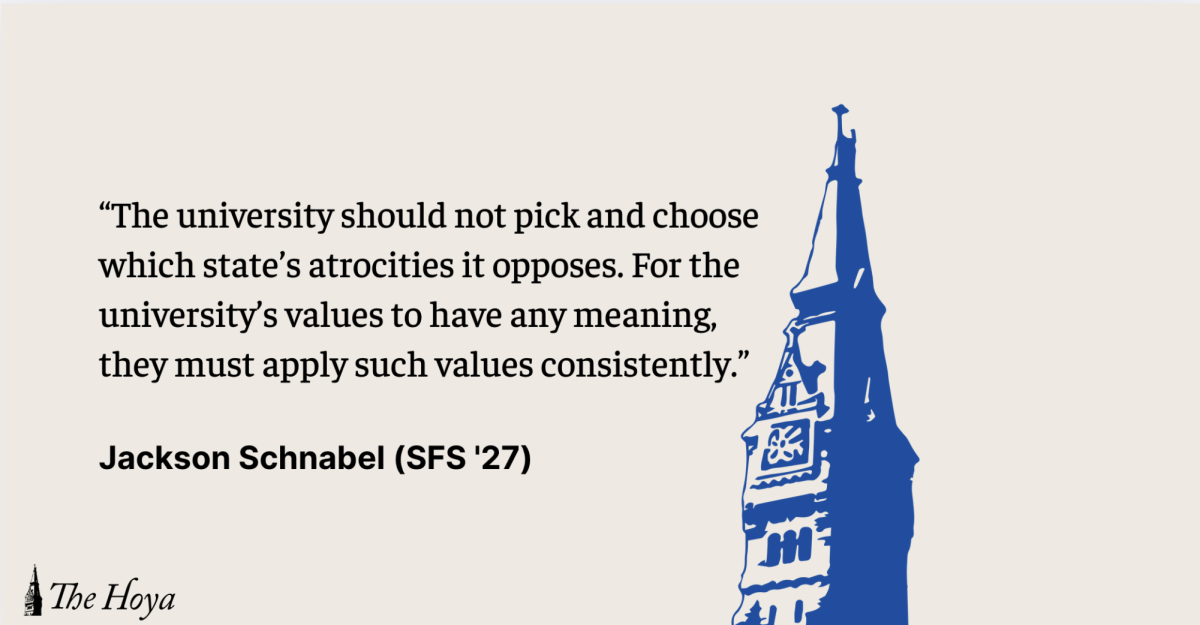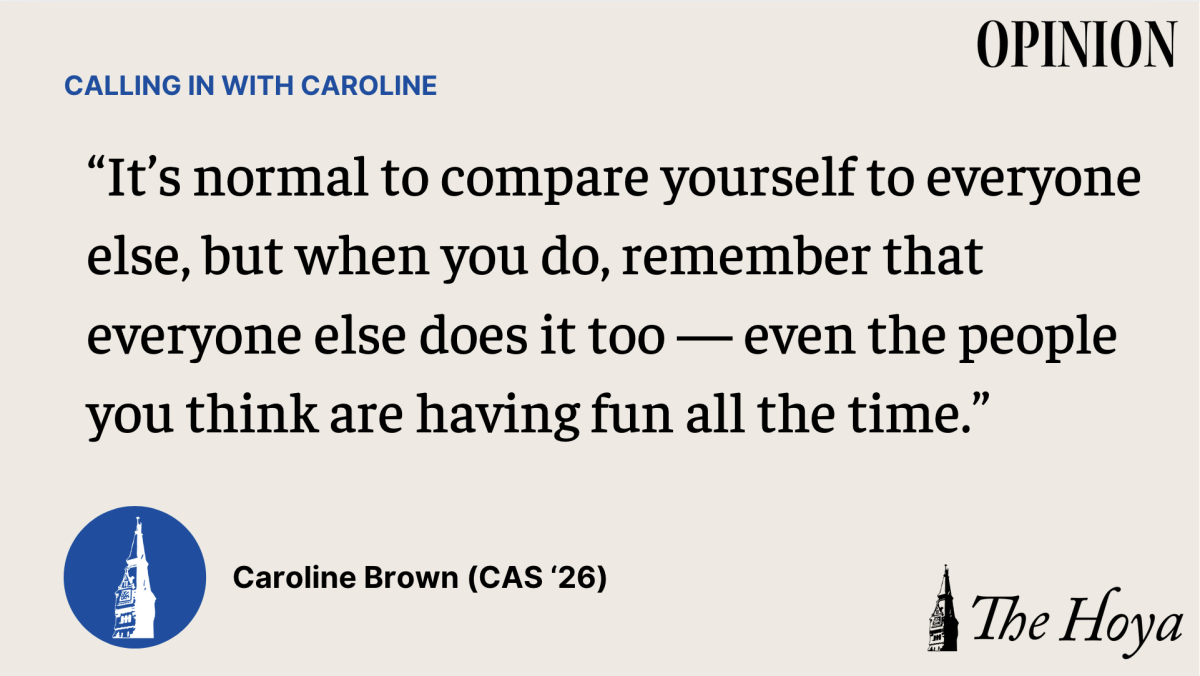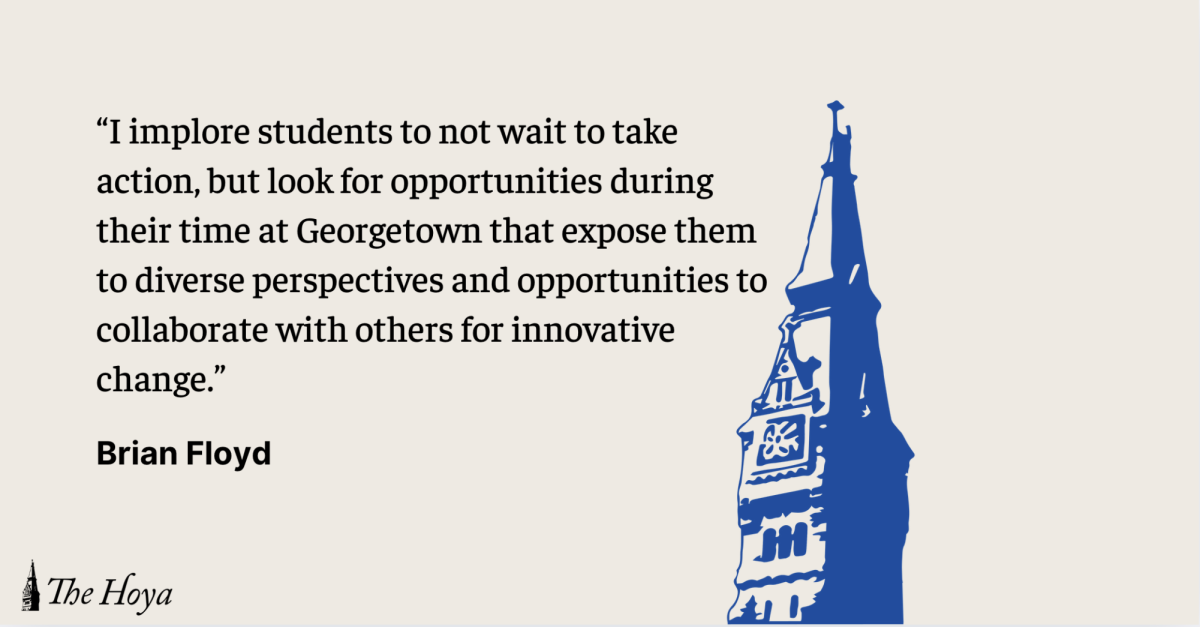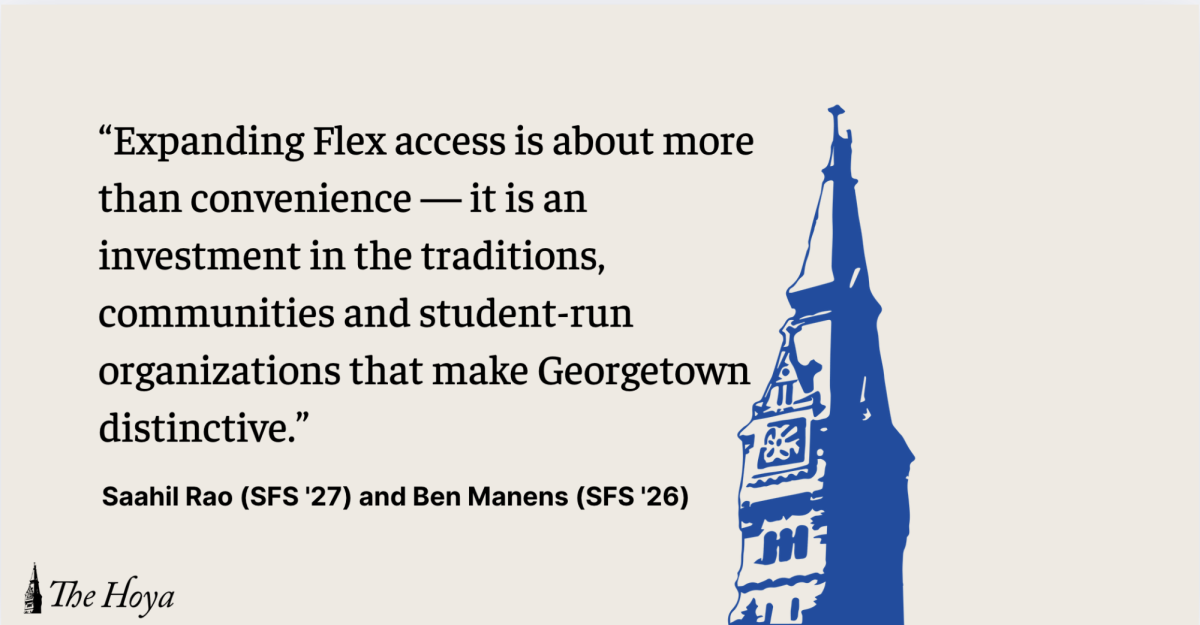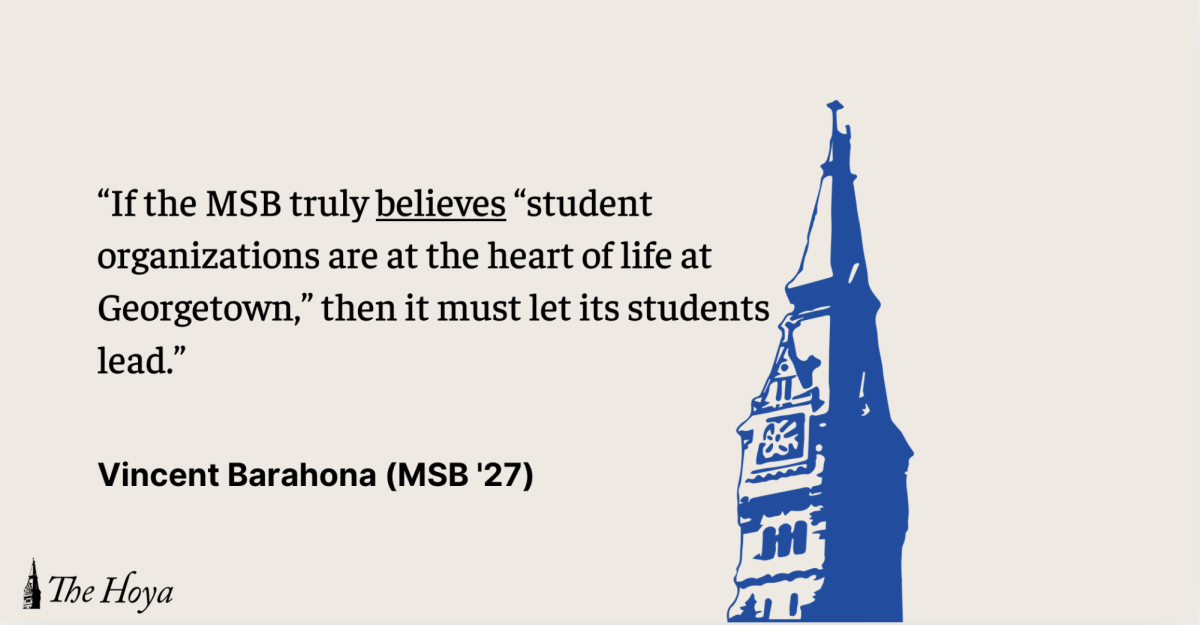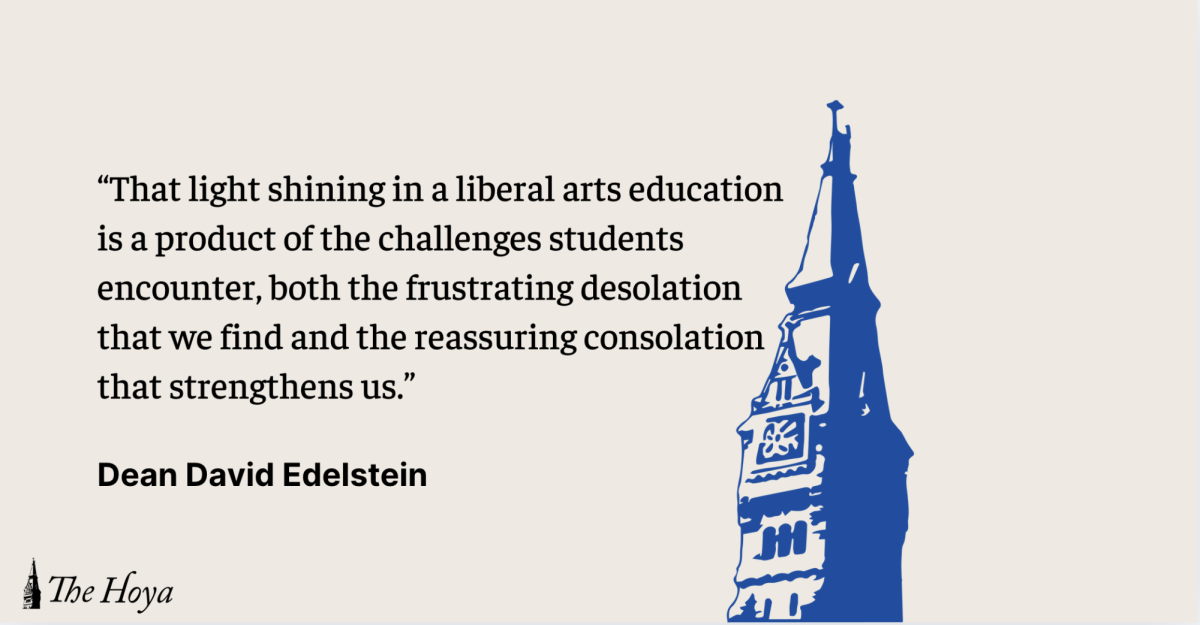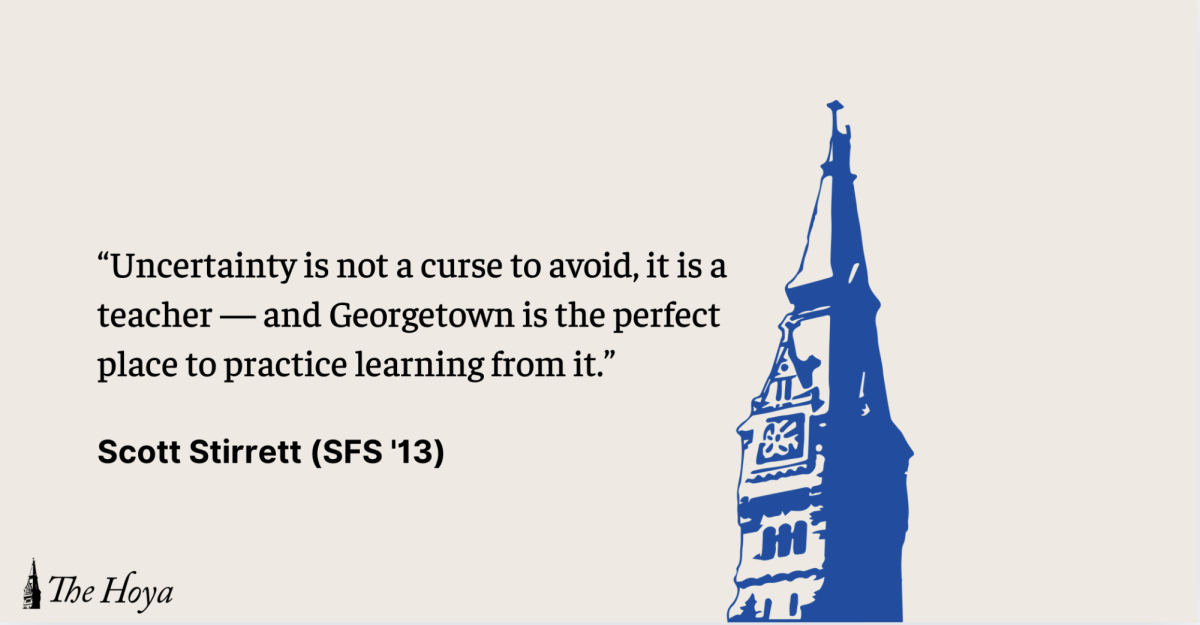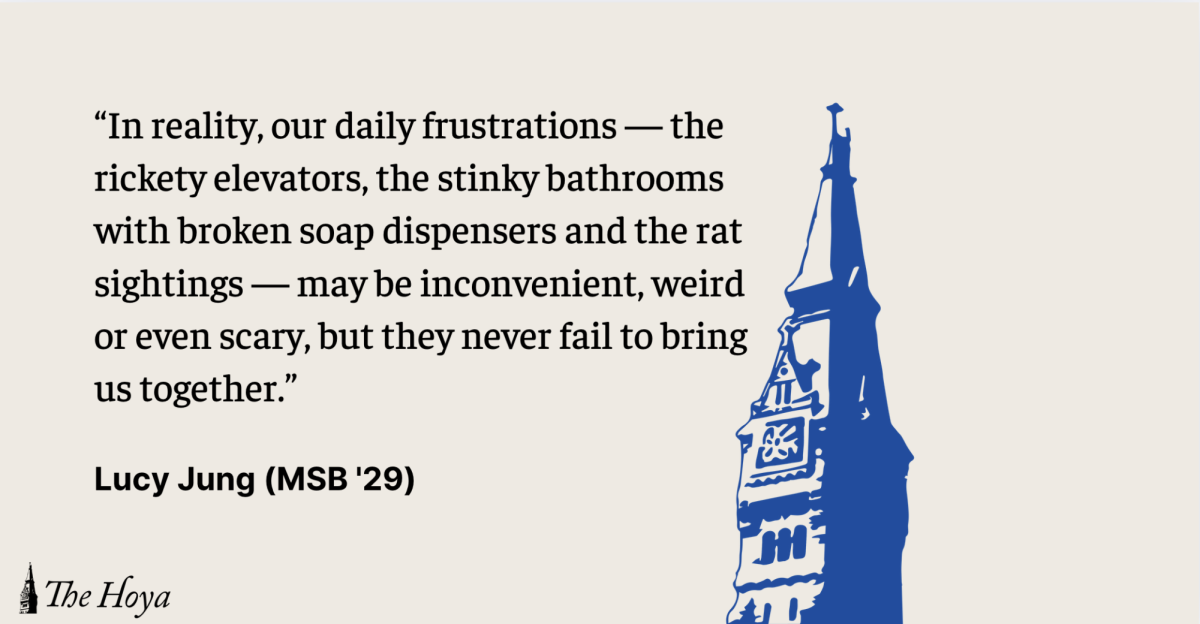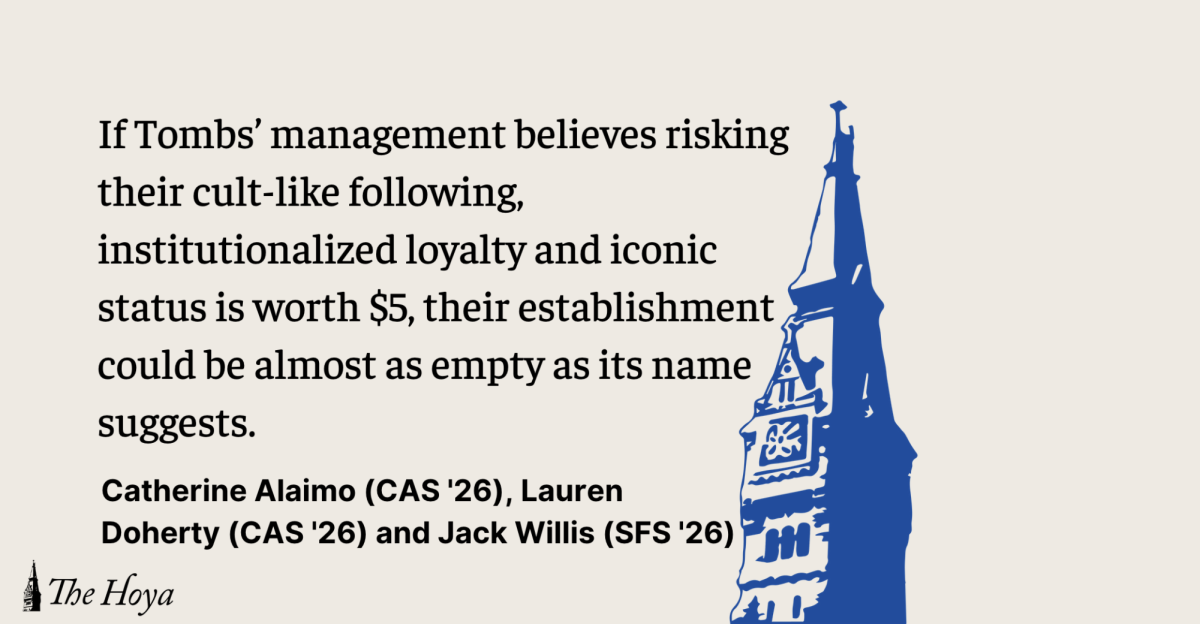It’s been a busy election season, both on and off campus. For the past few weeks, Georgetown University has been infiltrated by posters saying, “We won’t go back; Kamala 2024,” and others saying, “Make dining on campus better; Elect [insert name here] for Class of 2028 Senator.” Now it’s over. The dust is settling. While some emerge feeling invigorated and triumphant, many more are left in the lurch. Whether you’re Vice President Kamala Harris or a first-year Georgetown University Student Association (GUSA) hopeful, losing is hard.
I know this because I experienced it in last year’s GUSA executive election. A loss with proper magnitude leaves you bitter and cynical. You feel as if the results are a referendum on who you are and what you’re worth. It makes you want to distance yourself from everything and everyone around you in a simultaneously defensive and spiteful act. And maybe it throws you into a quarter-life crisis that culminates in an ill-advised beard and a penchant for Korean cigarettes. Or maybe you’re more resilient than I was.
My loss was all of the above and more. My GUSA executive campaign was, in large part, driven by a desperate attempt to feel like I mattered at Georgetown. I had just come off of a string of board rejections for clubs. I was already jaded. I wanted something that would move when I touched it. And when I lost, I felt like I crashed into a brick wall. I felt like my final bid to be part of a community had been rejected, and I came untethered from campus. I spiraled. Anyone who knew me then will recall my pseudo-uniform: a gray sweater and plaid pajama pants (that later would be used as my Tombs night theme). I skipped class serially and hid out in my Village A room, watching reality television to distract me from the constant loneliness and vague regret gnawing at me. I was angry, first at an ephemeral notion of “the world” and then more deeply at myself.
I’m writing this to tell you that it’s okay to feel that way. Brooding, even in its most camp form, can be cathartic. In fact, I encourage you to embrace the bitterness. When rejection stings the most and you feel like running away, it becomes easier to notice what is hardest to let go of — whether it’s a specific goal, a vision or a sense of belonging you thought you’d found. Focus on this: Excise the rest. Once you’ve squeezed cynicism and resentment for all they’re worth, though, let them go. And when you do, bring your mind back to campus. Reach out to people you want to see. Embrace the uncertainty you may feel. You’ll find that Georgetown, Washington, D.C. and the world is wider than you thought it was. It has space for you.
For me, reconciliation with Georgetown was slow. In fact, I took a leave of absence the semester after. I threw myself into a job to forget about being a student. I very intentionally ran away. However, as I rebuilt a foundation of purpose for myself, I found myself slowly being drawn back in. My first step was signing up to teach English at the Washington English Center. My class of Russian grandparents routinely reminded me how young I was and how much time I had left. Then, I got a job doing sound and lights for events on campus. I sat in on admissions board meetings and white coat ceremonies, seeing sides of Georgetown that made me feel proud to be a Hoya again. This led me to explore and participate in initiatives on campus, like the Hoya Harvest Garden on top of the Leavey Center. It’s hard to feel animosity toward a place that gives you free heirloom tomatoes. Finally, I reached out to people I had withdrawn from to share early-morning coffees and late-night study sessions. And suddenly, I felt like I had a place on campus again.
This is not to say everything worked out perfectly. I am not a believer in platitudes like “everything happens for a reason.” If I could go back in time, I know there are many things I would change. I’m still hit with pangs of paralytic fear and regret from time to time. But as I found out, and you will too, this wasn’t for nothing. I promise it doesn’t end here. The people you meet and the skills you learn are valuable. Just because you lost doesn’t mean your ideas, plans and ambitions won’t find a home elsewhere. Slow down and focus on things you care about. Truly and authentically experience Georgetown. Campus is big. Community is within reach. Try again.
Saatvik Sunkavalli is a senior in the School of Foreign Service.


